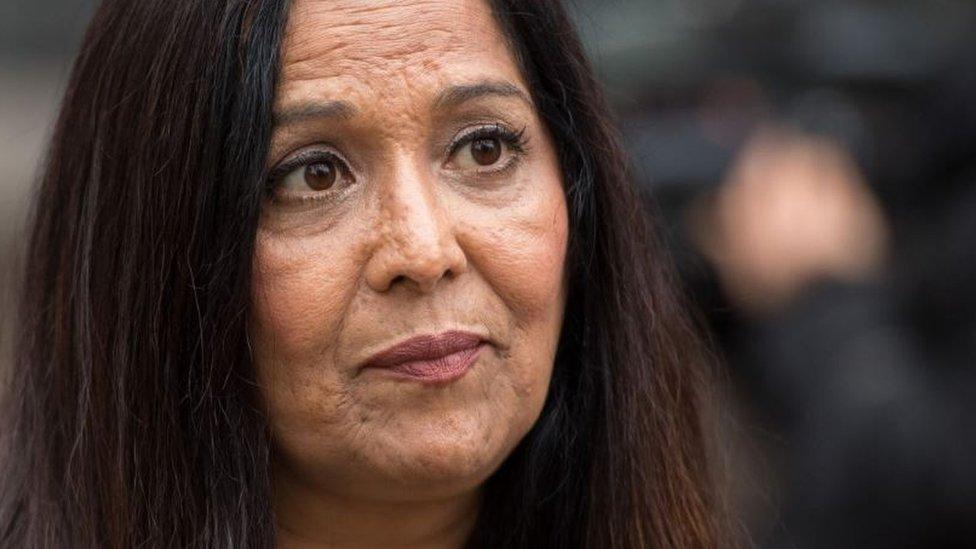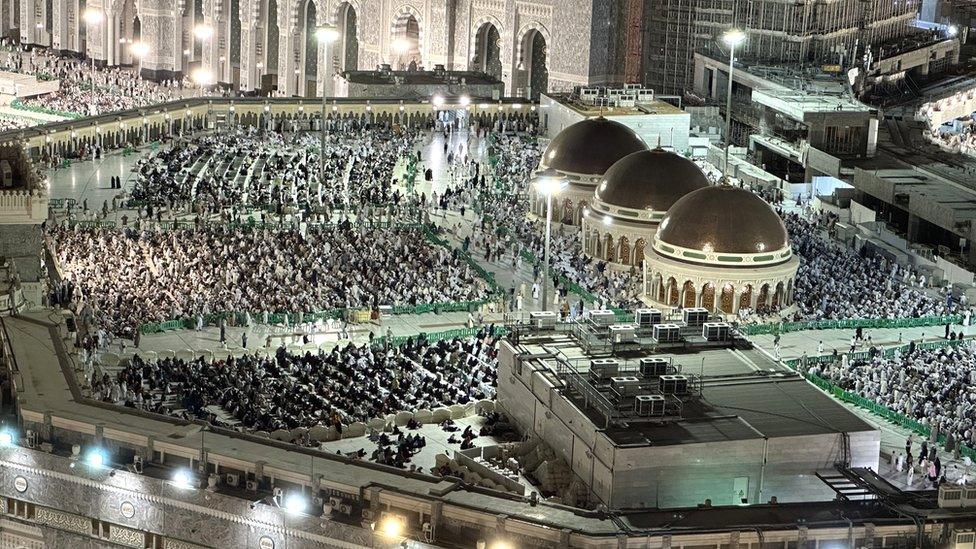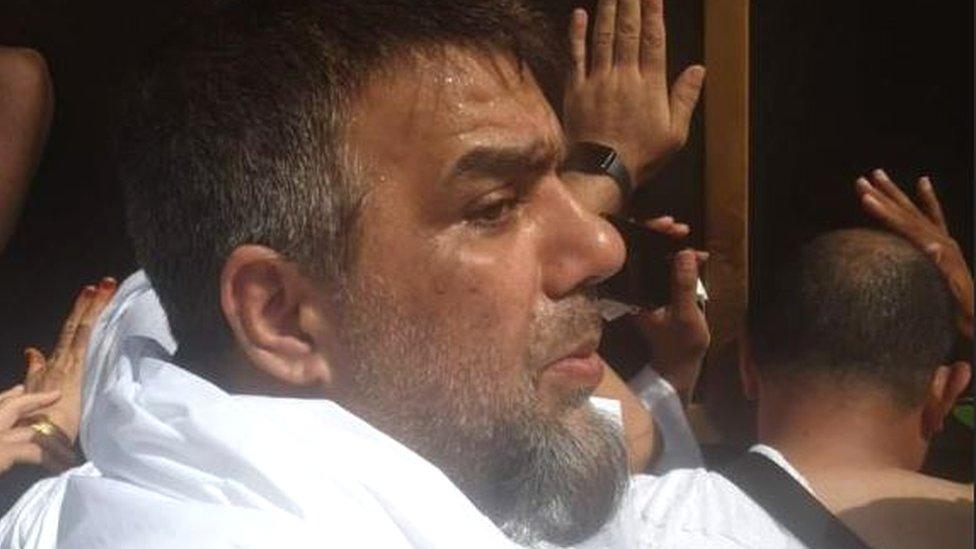Pilgrims should be compensated after problems at Hajj, says MP
- Published

"This is not a holiday, it's quite a costly journey," says MP Yasmin Qureshi, chair of the All Party Parliamentary Group on Hajj
A British MP is urging the Saudi government to compensate Hajj pilgrims who experienced problems with the sacred pilgrimage to Mecca this year.
The pilgrimage is regarded as one of the Pillars of Islam and Muslims are expected to make the trip at least once in their lives, if they are able to.
Before last year, 25,000 people from the UK would go on the sacred pilgrimage to Saudi Arabia.
But the Saudi government changed the rules in 2022 and now only about 3,600 people can go, booking packages directly with a Saudi travel company.
MP Yasmin Qureshi, chair of the All Party Parliamentary Group on Hajj and Umrah, says she has received letters of complaint from people saying they did not get the service they paid for under the new rules.
The BBC has also been contacted by a group of 245 pilgrims who have listed complaints about their experiences which they say "powerfully convey the extent of our dissatisfaction and the significant impact it has had on our spiritual journey".
One person said it had been "chaotic and disorganised, lacking proper planning" with another saying "to my disappointment, the time allocated for visiting Medina was significantly less than promised - reduced from three days to less than 24 hours".
They added: "This limited timeframe made it incredibly challenging to truly immerse myself in the profound spiritual experience that Medina offers pilgrims."

Hajj pilgrimage at Mecca, Saudi Arabia
The pilgrims who contacted the BBC had paid for the trip with a private Saudi contractor called Al-Rajhi.
Neither Al-Rajhi nor the Saudi online portal, Nusuq, where pilgrims initially book, replied to emails from the BBC requesting a response.
The BBC has also approached the Saudi government's Pilgrim Experience Program which says its role is "to provide the opportunity for the largest possible number of Muslims to perform Hajj and Umrah to the fullest extent and to work on enriching and enhancing their experience".
Ms Qureshi said: "If you were promised a 4-star hotel, maybe you had a 1-star hotel, or if you'd been promised your hotel would be within 10 minutes' walking distance of the main mosque, it was actually an hour. Or you did not get on your flights on time, or you were not picked up at the airport.
"This is not a holiday and it's not cheap either, it's quite a costly journey and therefore when you do that, you pay that money, to then not be able to have proper systems in place, your Hajj being affected, I really do feel for them.
"I think what we need to tell the Saudis is that perhaps these people [Al-Rajhi] shouldn't be used again and to ensure the portal has a system of compensating people when things go wrong.
"They should make sure the companies don't take advantage of people, that there are proper services, but it should hopefully prevent it happening again and those affected should get compensation for what's happened to them."
One of the pilgrims, Shabana Qassim, from Bradford, said she was surprised by how hard it was to book.
"The process here was much more difficult because I suppose they've taken out the middleman of this travel agent and we're going and booking directly with Saudi Arabia."
She said once she arrived in Saudi Arabia, there were no guides to greet them at the airport, no coaches to take them to their hotels and they struggled to get help carrying out the sacred rituals.
"I would say, for many of the pilgrims in the group I went with, a lot of time was taken away from spending time on our spirituality, on our reflection… and you've got people who were elderly who were left without support to go to complete the various rituals."

Naveed Hussain said he wanted action so people travelling on future pilgrimages would not experience the same hardships
Bradford businessman Naveed Hussain, who was on his first visit to Saudi Arabia, said: "I was under the impression that somebody would meet us there, would guide us and tell us what to do... but there was nobody there.
"We didn't see anybody who introduced themselves… and we had to find our own coaches, it was find it yourself basically. It was hard all the way through.
"What we want to do, for future Hajjis, we don't want them to struggle like some in our group did. A lot of elders struggled. I don't want them to go through the same hardships as some of the elders that went with us."
The Council of British Hajjis, which has represented pilgrims' interests for many years, said it was aware of the complaints, but that pilgrims should complain directly to the Saudi tour operator who should carry out its own investigations and compensate those affected.
But the pilgrims who have complained say they are not just after compensation.
"People should go to Hajj, it's an obligation on you if you can financially afford to do so, if you're healthy enough to do so," said Ms Qassim.
"What we're saying is the system needs to work better.
"There's a little bit of kind of, not resentment, I can't word it properly, they took that away from us, that's how I feel. They took that time away from us. And most people are not going to go to Hajj again. And that is a bitter-sweet time, really, for some people."

Follow BBC Yorkshire on Facebook, external, Twitter, external and Instagram, external. Send your story ideas to yorkslincs.news@bbc.co.uk, external.